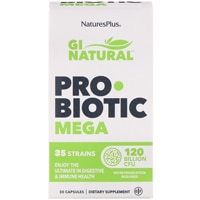We typically try to avoid bacteria, as they can make us ill. But not all bacteria are bad. In fact, a category of bacteria called probiotics can bolster our bodies.
Probiotics are foods or supplements that contain live microorganisms designed to maintain or improve the “good” bacteria in your body, according to the Mayo Clinic.
Fermented foods like yogurt, sauerkraut, kombucha and tempeh are packed with probiotics. But probiotics also are available in supplements. These supplements supply “beneficial bacteria that naturally occur, live and even thrive in the bodies of healthy individuals,” says nutritionist Lisa Richards, author of “The Candida Diet.”
Scientific evidence indicates numerous benefits of foods and supplements providing certain types of probiotics, according to Harvard Medical School.
If you’re not a fan of probiotic-saturated foods like yogurt, sauerkraut, kombucha and tempeh or they’re just not doing the trick, a supplement might be the best probiotic option for you, says Kelsey McCullough, a registered dietitian nutritionist, licensed dietitian and certified intuitive eating counselor.
Probiotic supplements commonly come in capsule form, but are also available as powders, liquids and gummies, she says.
Here are four tips for picking the right probiotic supplements for you.
1. Select the right strains.
Richards says it’s best to choose specific strains of bacteria in probiotics that address your health needs.
For instance, Lactobacillus paracasei (or L. paracasei) fights Porphyromonas gingivalis, which causes periodontal disease, while Lactobacillus acidophilus (L. acidophilus) produces lactic acid that boosts your immune system and regulates your gut health, Richards says. If you’re coping with irritable bowel syndrome or colitis, you might try Lactobacillus plantarum (L. plantarum), which protects the membrane that surrounds your gut, she says.
“Not all probiotic strains are created equal, and each can help in different ways. That’s why choosing a supplement that contains a few different strains is a good call,” says Charlotte Martin, a registered dietitian and certified personal trainer.
McCullough says that whichever probiotic supplements you decide on, be sure to buy ones from reputable brands that adhere to Good Manufacturing Practice regulations.
In the U.S., probiotic supplements do not go through the same testing and approval process that drugs do, Harvard Medical School points out.
“Manufacturers are responsible for making sure they’re safe before they’re marketed and that any claims made on the label are true,” the medical school warns. “But there’s no guarantee that the types of bacteria listed on a label are effective for the condition you’re taking them for.”
Probiotics are generally considered safe, according to Harvard Medical School, but they might be risky for people with impaired immune systems.
“Be sure the ingredients are clearly marked on the label and familiar to you or your health provider. There’s no way to judge the safety of unidentified mixtures,” the school says.
2. Pay attention to the CFUs.
Martin recommends looking for a probiotic supplement that contains at least a few billion CFUs, or colony-forming units, which measure the amount of bacteria. A probiotic should contain at least 10 billion CFUs for adults and at least 5 billion CFUs for children, according to Richards.
3. Look for a prebiotic, too.
Although research on the benefits of prebiotics is still evolving, you might want to seek a probiotic supplement that also delivers prebiotics, Martin says.
“Prebiotics feed and fuel the probiotics so that they can do their job,” she says.
Prebiotics are found in foods such as whole grains, bananas, greens, onions, garlic, soybeans and artichokes, the Mayo Clinic says. They’re also available as prebiotic dietary supplements.
4. Be patient.
You might not see a change right after starting a probiotic regimen, according to Martin, but don’t be discouraged.
“It may require a little experimenting and some trial and error until you find the perfect probiotic for you,” she says. “If you don’t notice a difference after a few weeks of using a particular probiotic supplement, it may be time to try a different one.”




